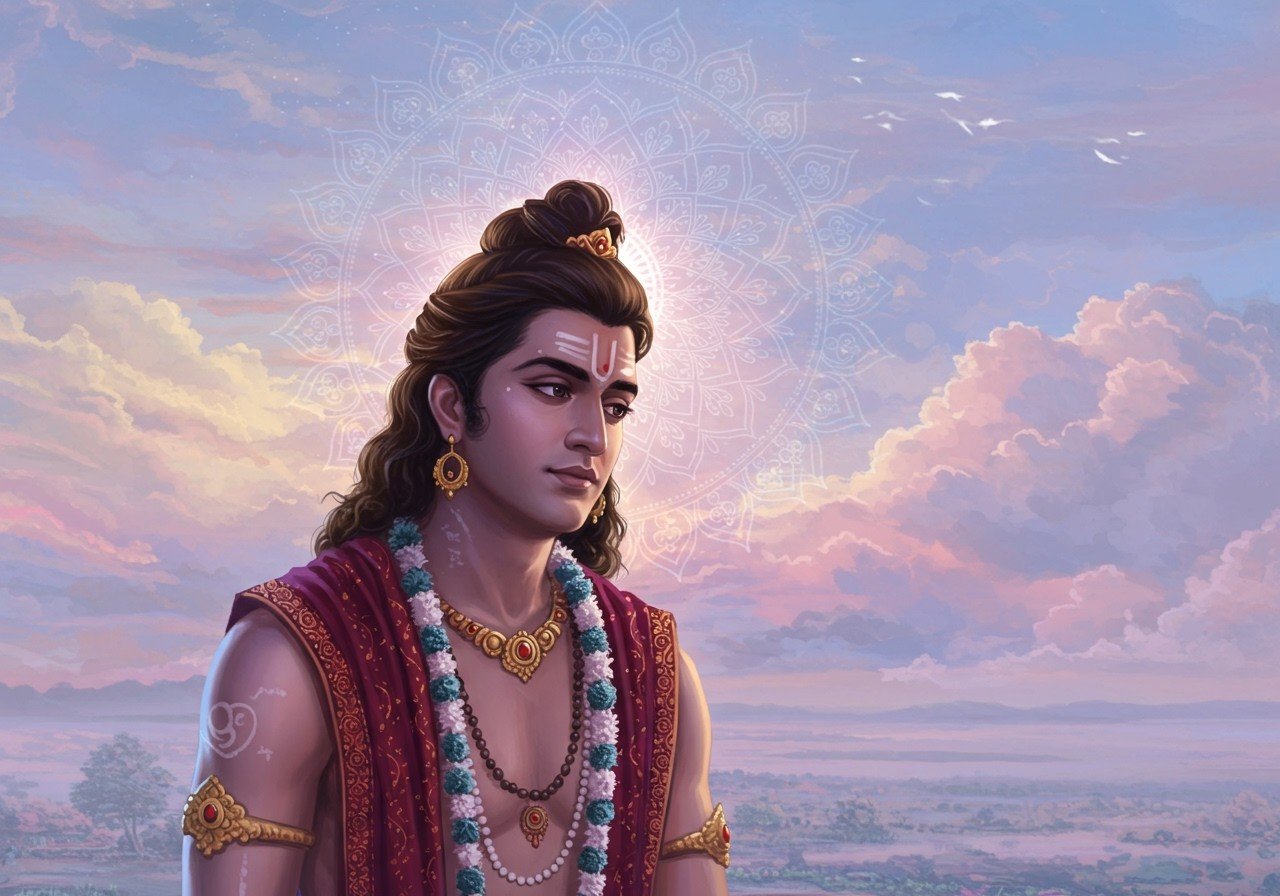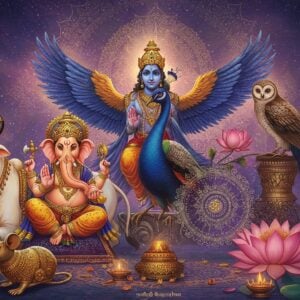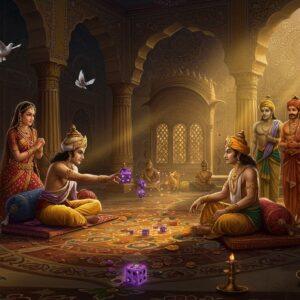
The Mahabharata, a timeless epic, weaves tales of dharma, karma, and destiny. Among its many compelling characters, Sahadeva, the youngest Pandava, stands out with his unique gift of foresight. This divine blessing, however, comes with a heavy price, creating a paradox that echoes through the ages. Was his ability to glimpse the future a boon or a burden? Let’s delve into this intriguing aspect of the Mahabharata.
The Seer’s Dilemma: The Gift and the Curse
Sahadeva’s foresight wasn’t merely intuition; it was a divine endowment from the Sun God, Surya. Yet, this gift came with a stringent condition – he could not reveal his premonitions unless directly asked. Imagine bearing the weight of future events – the Kurukshetra War, Draupadi’s humiliation – yet being bound to silence. This restriction wasn’t just a test of his willpower but a deep exploration of the human condition. He carried the burden of knowledge that could change destinies but was forbidden to interfere. This restriction, a double-edged sword, shaped Sahadeva’s life, forcing him to navigate the treacherous path of destiny and free will.
Navigating Dharma: Sahadeva’s Ethical Struggles
Sahadeva’s predicament wasn’t just about knowing the future; it was about grappling with ethical dilemmas. What would you do if you foresaw a loved one’s misfortune but couldn’t warn them? This constant moral struggle added layers of complexity to Sahadeva’s character. His silence wasn’t passive; it was a constant internal battle between dharma and his extraordinary gift. The Mahabharata, through Sahadeva, masterfully portrays the complexities of human morality.
Destiny’s Dance: Free Will and Predestination
In Hindu philosophy, fate and free will are intertwined. Sahadeva’s foresight embodies this delicate balance. His knowledge represented preordained events, yet his silence highlighted the limits of human intervention. The epic suggests that certain events are destined to unfold, irrespective of individual actions, highlighting the cosmic play of destiny. The Mahabharata’s narrative skillfully depicts the interplay between these forces, raising questions about the boundaries of human agency and the grand scheme of the universe.
A Divine Alliance: Sahadeva and Krishna
Krishna, the divine charioteer and strategist, recognized the profound nature of Sahadeva’s gift. Their interactions weren’t mere conversations but a delicate dance between divine wisdom and human insight. Krishna, aware of Sahadeva’s foresight, sought his counsel, showcasing a deep respect for Sahadeva’s wisdom. This dynamic underscored a powerful theme: even the divine can benefit from human perspective. Krishna’s guidance ensured Sahadeva used his foresight wisely, always respecting the intricate flow of destiny. Their bond emphasized the balance between divine intervention and human participation in the grand narrative of life.
A Mirror to Our Lives: Lessons from Sahadeva
Sahadeva’s story is a profound reflection on the human experience. It reminds us that knowledge, however powerful, can be a burden. Imagine knowing something inevitable, yet being unable to change it – a scenario many of us face in different forms. Sahadeva’s tale invites introspection. Would knowing the future truly be a blessing, or could it become an unbearable weight? His journey highlights the importance of acceptance and humility in the face of destiny. It’s a testament to the power of surrender and the wisdom of choosing our battles.
Poojn.in: Your Companion on the Spiritual Journey
As we reflect on Sahadeva’s journey, we are reminded of the importance of connecting with our traditions. At Poojn.in (https://www.poojn.in), we offer a wide selection of authentic puja items, spiritual books, and culturally significant items that can enrich your understanding and practice of Indian traditions. Whether you seek ritual kits for specific ceremonies, insightful books on the Mahabharata, or sacred offerings to enhance your spiritual space, we have something to offer. Connect with us at 03369029784 or WhatsApp us at 9476142738 for any assistance or guidance.
Exploring Sahadeva’s Foresight: Addressing Common Questions
How did Sahadeva gain his foresight? Sahadeva’s ability to foresee events stemmed from a divine blessing from Surya, the Sun God, coupled with his own deep meditative practices. Some accounts suggest he also inherited some of this wisdom from his father, Pandu.
Could Sahadeva change the future he foresaw? No, Sahadeva was bound by a divine restriction. Revealing his premonitions uninvited would have dire consequences, creating a poignant paradox of knowledge without the power to act upon it. He couldn’t directly intervene, which emphasizes the complex interplay of fate and free will.
How did Sahadeva’s foresight influence the Mahabharata? Although he couldn’t alter destiny, his wisdom played a significant role. He offered guidance when asked, subtly shaping the course of events within the boundaries of his restriction. He provides important insight and advice to his brothers, particularly Yudhishthira, when specifically consulted.
What can we learn from Sahadeva’s story? Sahadeva’s journey teaches us profound lessons about acceptance, humility, and the complexities of destiny. His silent struggle emphasizes the importance of inner strength and resilience when facing inevitable challenges. We learn about the balance between knowledge and action, wisdom and restraint.
Where can I find resources to learn more about Sahadeva and the Mahabharata? Poojn.in offers a wide range of books and resources on Indian epics and spiritual practices. You can explore our collection to deepen your understanding of the Mahabharata and its timeless wisdom.
What relevance does Sahadeva’s story hold today? Sahadeva’s dilemma resonates with modern challenges. We often face situations where we have knowledge or insights but are limited in our ability to act. His story encourages us to navigate these situations with grace, wisdom, and acceptance.


